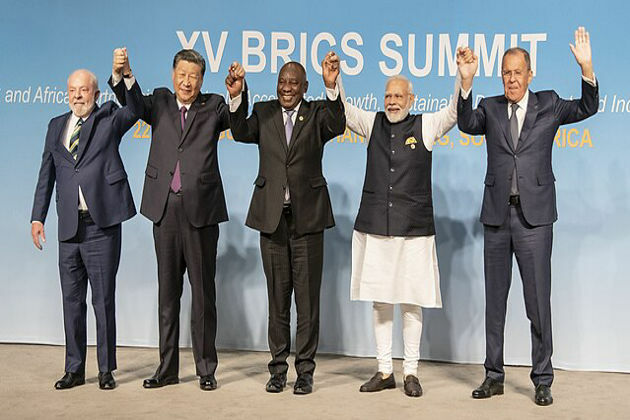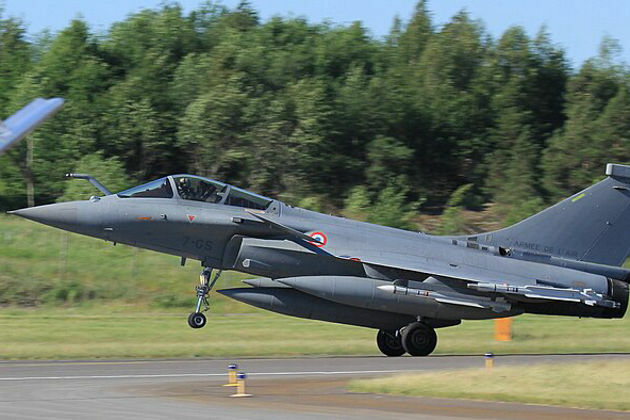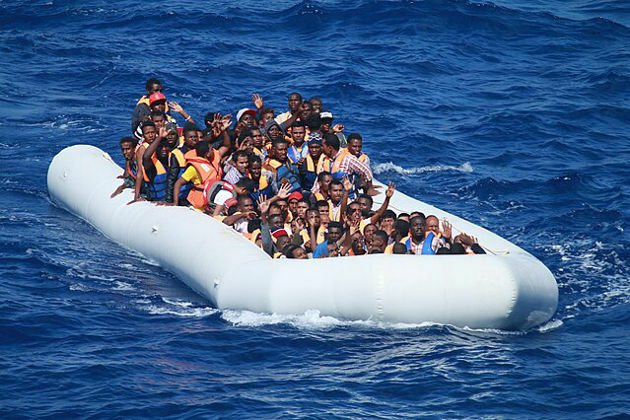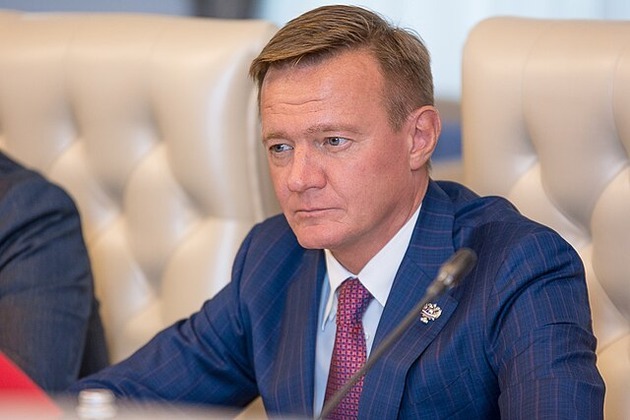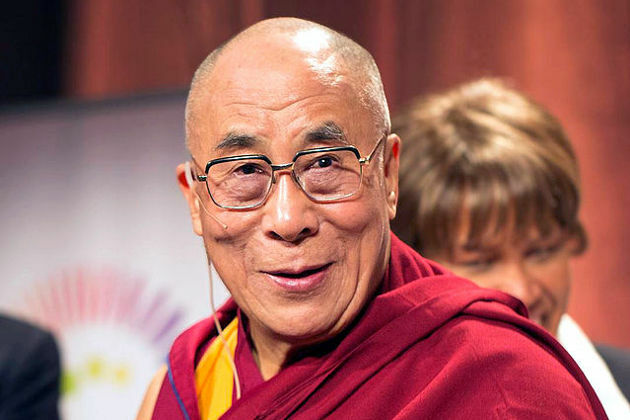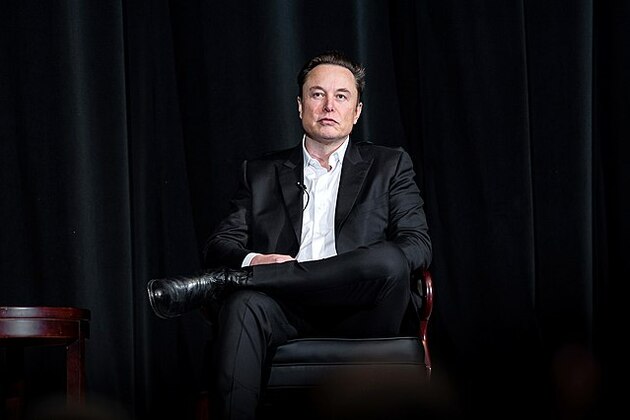Fyodor Lukyanov: Biden talks the talk, but is the US committed to meeting its international security obligations?
RT.com
26 May 2022, 22:22 GMT+10
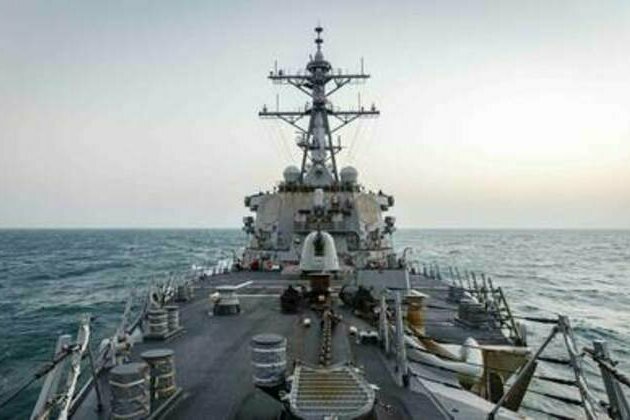
Asia is now the most interesting arena of world politics, and regional powers are looking for signs that America's words will be backed up by action
US President Joe Biden's visit to South Korea and Japan this week was his first in East Asia since taking office. The importance of this trip is undeniable. Washington is working hard to bring together what is commonly called 'the collective West'.
Due to the fighting in Ukraine, Europe - in the Western sense - is currently united. This leaves Asia, where the willingness to line up in one direction is less pronounced. The measures against Russia have been unequivocally supported by Tokyo and Seoul, while only Singapore has joined them from the members of the Association of Southeast Asian Nations (ASEAN). India does not want to follow America's direction, despite the visible pressure.
The issue of Ukraine is important to Asian states, especially in light of its impact on the global economy. Nevertheless, it is natural that events in Eastern Europe are not as exciting for Asia as they are for Europeans and some Americans. The focus in that part of the world is on Beijing, and the US is trying to build a policy of mobilizing its Asian partners against Russia, with China in mind, but without provoking the latter prematurely. This is a difficult task.
At a press conference in Tokyo, Biden answered yes to the question of whether America intends to defend Taiwan in the event of an attack by Beijing. This caused an uproar. American commentators, both official and unofficial, insisted that he made 'a slip of the tongue'. The White House's interpretation is that he was talking about assistance on the Ukrainian model - supplying the island with weapons so it can defend itself.
Biden is prone to verbal gaffes, but in this case it did not look like one at all. Both in form and in substance. There is a lot of talk in Washington about what the Chinese need to understand clearly: America will not be an indifferent observer if Beijing plans to repeat in Taiwan what Russia did in relation to Ukraine.
The argument now is that firmness is required when it comes to China.
Firmness is a good thing, but the deliberate 'complexity' (one might even say 'intentional vagueness') of US policy on Taiwan makes its manifestation almost impossible.
The strategic ambivalence towards Taiwan (closely cooperating in all areas, but recognizing it as part of China) goes back to the early 1970s, when Richard Nixon and Henry Kissinger recognized communist Beijing as the legitimate representative of China, while denying this recognition to nationalist Taipei. It was indeed a historic U-turn that contributed significantly to the United States' eventual victory in the Cold War. It also allowed both sides (the Americans and Chinese) to strike key economic deals while avoiding conflict for half a century.
But now, things are taking a dangerous turn. The strategic confrontation between Washington and Beijing is not only an accomplished fact, but also a doctrinal one.
The competition is complex, but as is the case with US-Russia relations, there is an explosive subject at its center. We have Ukraine, they have Taiwan. And here we have an almost unsolvable dilemma.
Officially, the US emphasizes its commitment to the One-China policy, but offers security guarantees to what it recognizes as part of another state. It is not clear how to combine these two mutually exclusive positions. Hence the efforts to disavow the words of the president, who clearly meant exactly what he said.
Looking at this struggle, the Chinese leadership might think that the Americans are confused by their desires and intentions and are not confident enough in their position. Which would only encourage action, from the perspective of Beijing.
The very regional partners Washington wants to encourage to unite are also confused. For Japan, South Korea, Singapore, the Philippines, and others, Taiwan is an indicator of America's determination to fulfill its security commitments. But it's not a reliable indicator, precisely because of its ambivalent status and, therefore, the extremely high risk involved.
However, Washington will still be judged on it. And if the Americans fail to take action, the rest of the holders of its promises on security guarantees will think twice. This doesn't mean they will make a U-turn on their policies towards China, but that their willingness to engage in American strategic initiatives will fade.
The problem for the US is that, despite its interest in strengthening alliances, it is stingy with positive proposals. For example, urging India and China to join the boycott of Russia is accompanied not by beneficial economic offers, but by warnings about the 'price' of being on the 'wrong side of history'. The Indo-Pacific Economic Agreement, announced by Biden in defiance of China, is a framework which fails to offer the sort of expanded access to the US market which would interest its participants.
Be that as it may, in the overall sense, Asia has become the main and most interesting arena of international politics. Especially for Russia, since the European scene has been closed to us for an indefinite period, and the formation and success of our new foreign policy now depends on relations with our Eastern partners.
 Share
Share
 Tweet
Tweet
 Share
Share
 Flip
Flip
 Email
Email
Watch latest videos
Subscribe and Follow
Get a daily dose of Taiwan Sun news through our daily email, its complimentary and keeps you fully up to date with world and business news as well.
News RELEASES
Publish news of your business, community or sports group, personnel appointments, major event and more by submitting a news release to Taiwan Sun.
More InformationBusiness
SectionBRICS issues rebuke on trade and Iran, avoids direct US criticism
RIO DE JANEIRO, Brazil: At a two-day summit over the weekend, the BRICS bloc of emerging economies issued a joint declaration condemning...
BP appoints ex-Shell finance chief Simon Henry to board
LONDON, U.K.: This week, BP appointed Simon Henry, former Shell finance chief, to its board as a non-executive director effective September...
FedEx, UPS step up as Canada Post loses market share in strikes
OTTAWA, Canada: With Canada Post struggling to maintain operations amid labour unrest, rivals like FedEx and UPS are stepping in to...
U.S. stocks steady Tuesday despite tariffs turmoil
NEW YORK, New York - U.S. and global markets showed a mixed performance in Tuesday's trading session, with some indices edging higher...
Beijing blamed for covert disinformation on French fighter jet Rafale
PARIS, France: French military and intelligence officials have accused China of orchestrating a covert campaign to damage the reputation...
Birkenstock steps up legal battle over fakes in India
NEW DELHI, India: Birkenstock is stepping up its efforts to protect its iconic sandals in India, as local legal representatives conducted...
International
SectionDeadly July 4 flash floods renew alarm over NWS staffing shortages
WASHINGTON, D.C.: After months of warnings from former federal officials and weather experts, the deadly flash floods that struck the...
Putin fires transport chief, later found dead in suspected suicide
MOSCOW, Russia: Just hours after his sudden dismissal by President Vladimir Putin, Russia's former transport minister, Roman Starovoit,...
Thousands gather in Himalayas as Dalai Lama celebrates 90th birthday
DHARAMSHALA, India: The Dalai Lama turned 90 on July 6, celebrated by thousands of followers in the Himalayan town of Dharamshala,...
Fans perform WWII-era Fascist salute at Marko Perković’s mega concert
ZAGREB, Croatia: A massive concert by popular Croatian singer Marko Perković, known by his stage name Thompson, has drawn widespread...
U.S. Treasury Secretary says Musk should steer clear of politics
WASHINGTON, D.C.: Elon Musk's entry into the political arena is drawing pushback from top U.S. officials and investors, as his decision...
TikTok building U.S.-only app amid pressure to finalise sale
CULVER CITY, California: TikTok is preparing to roll out a separate version of its app for U.S. users, as efforts to secure a sale...

